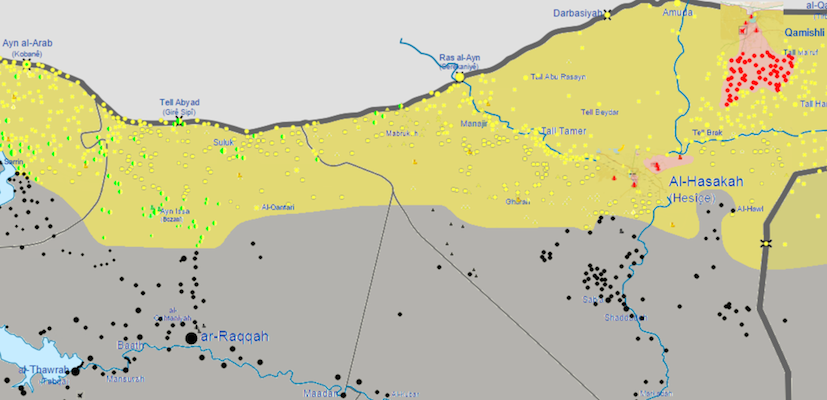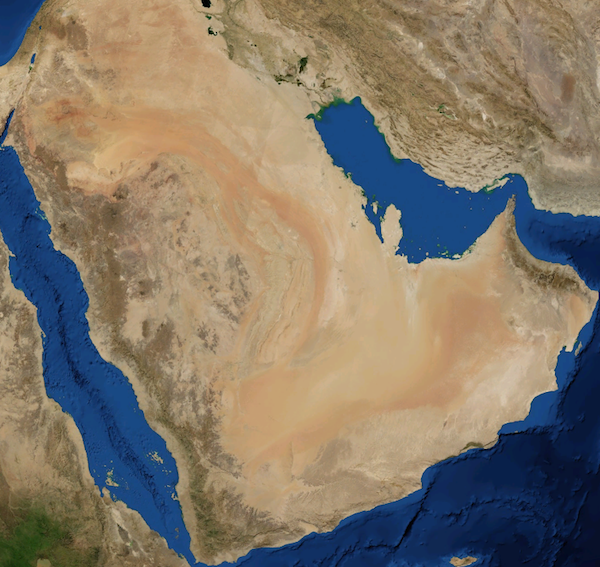Trench warfare largely fell out of favor when aerial bombing became more commonplace and it wasn’t so rare for one or both sides to possess aircraft with serious ground attack capabilities. (Paratroopers didn’t help matters either, if you were trying to defend a location via front-facing trenches.)
But in a conflict where neither side has its own air force, such as the war between Kurdish YPG fighters and ISIS in eastern Syria, extensive trench complexes still make sense for slowing offensives and for securing territory. The New York Times sent reporters to the Kurdish front lines and reported back on the scale and complexity of the earthworks there:
[Kurdish] fighters hold most of the more than 280-mile-long front line with the Islamic State. Parts of it have come to resemble an international border, with deep trenches and high berms running for miles, lined with bright lights to prevent jihadist infiltrators. The whole line is dotted with heavily sandbagged positions to protect against machine gun and mortar attacks by the jihadists.
The geo-ethnic divisions wracking Syria, Iraq, and Turkey today were largely drawn during World War I and the five or so years that followed it, so it’s interesting to see massive earthworks and trench networks like that war re-emerge a century later in the waging of this conflict.

Approximate front line of the southward push by Kurdish YPG forces against ISIS in eastern Syria, as of October 26, 2015. (Map via Wikimedia community.)










